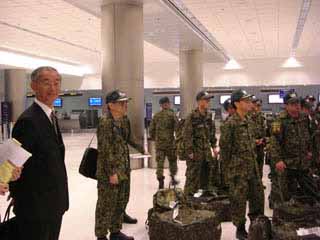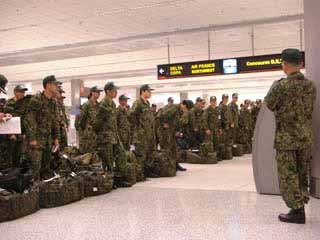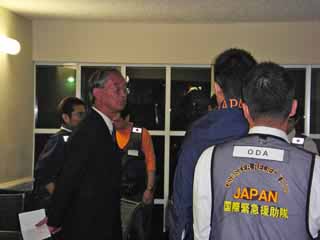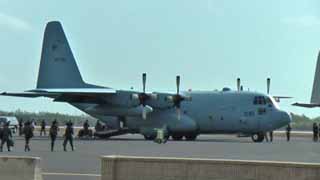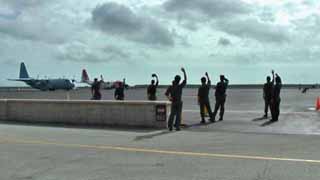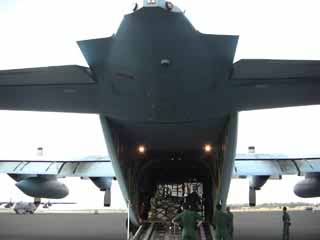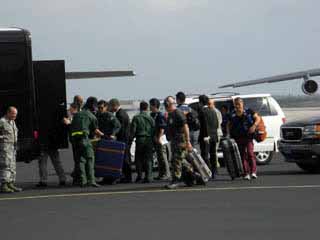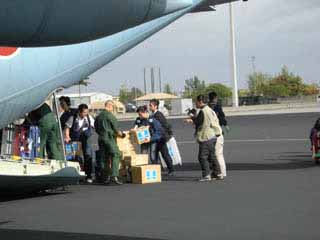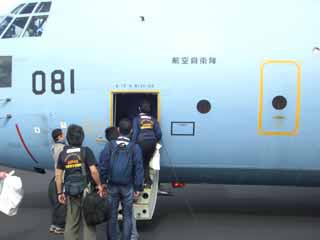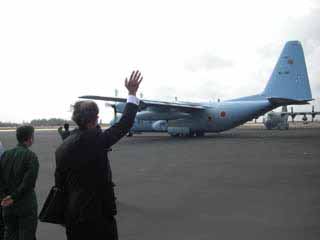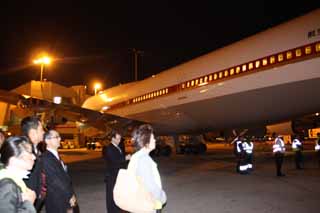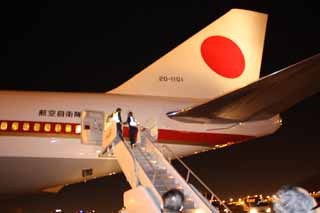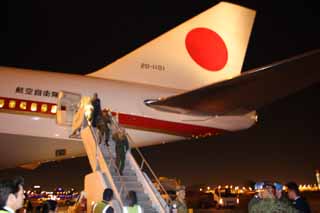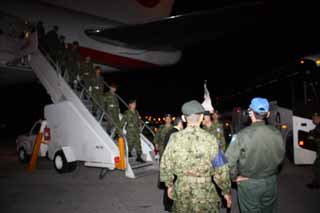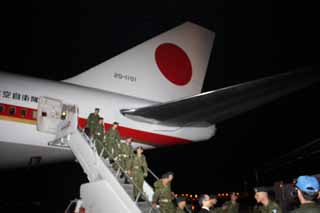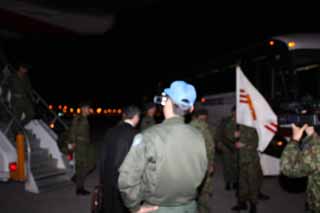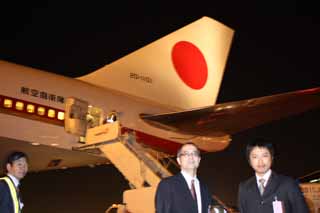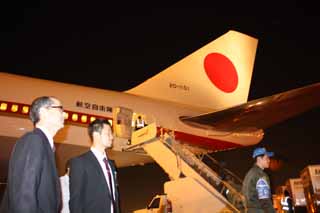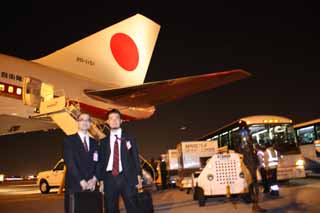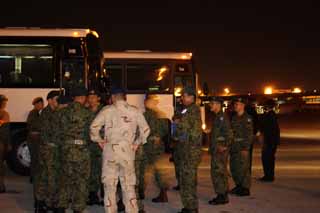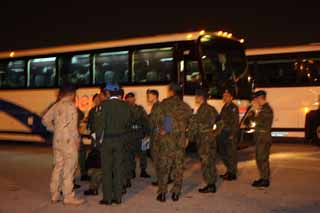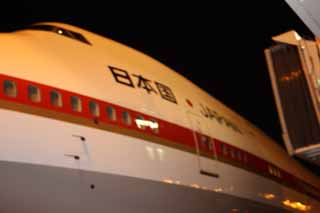Japan's Haiti Relief Efforts
January 27, 2010When the earthquake hit Haiti on January 12, 2010, Japan quickly mobilized its resources to assist with the relief effort. Despite heavy damage to the Japanese Embassy in Haiti, diplomats stationed both in Haiti and in the Dominican Republic worked hard to ensure the safety of Japanese civilians in Haiti and to help coordinate Japanese relief efforts to earthquake victims. Additional consuls were sent from other Japanese missions around the world to help relieve some of the load and to help focus support efforts. Within 24 hours of the earthquake's occurrence, the Ministry of Foreign Affair announced it was giving US $5 million to the relief effort, to be divided among UNICEF, the World Food Programme (WFP), and the International Federation of Red Cross and Red Crescent Societies (IFRC). Additionally, Japan promised ¥30 million in emergency relief goods, such as tents. Japan also dispatched an emergency survey team that was headed by the Japanese Ambassador to Haiti, Mr. Nobutaka Shinomiya, and was made up of members from the Ministry of Foreign Affairs, the Ministry of Defense, and the Japan International Cooperation Agency (JICA). The Japan Disaster Relief Team followed this initial survey and arrived in Haiti on January 17 to implement initial medical support activities in Léogane, a city located approximately 40 km west of Port-au-Prince. On January 20, Japan dispatched a 100-person International Disaster Relief Medical Support Unit. This team is made up of members of the Self-Defense Force and 40 medical personnel, including 14 medical officers. The team arrived in Miami on January 21 and from there traveled to Léogane to take over and further develop the efforts of the earlier medical team. The Japanese planes that carried these teams to Haiti have also played an essential role in assisting American citizens return to the United States. On January 17, Japan responded to an appeal from the US Department of State and evacuated 34 Americans who were living or visiting Haiti to Homestead, Florida. Our efforts are not limited to Japanese and Haitians, but to all those affected by the earthquake. In a continued sign of our support, at a January 25 meeting of world leaders in Montreal to discuss the Haiti crisis, Japan pledged a further $70 million in aid and that it would send as many as 300 peacekeepers to the Haitian UN mission. The Consulate General of Japan in Miami is proud to be part of Japan's Haiti Relief Effort. Members of our staff have worked tirelessly to assist in transporting personnel and equipment between Miami International Airport and the Homestead Air Reserve Base. We have also worked closely with the Japanese missions in Haiti and the Dominican Republic, including sending Deputy Consul General Sato to the Dominican Republic for several days to assist with internal infrastructure and support. We are strongly involved with the relief efforts in Haiti, and will continue to do our best to help the people of Haiti.
February 9, 2010The Japanese government continues with its efforts to assist the people of Haiti. On January 29, the government announced that it would be sending a Ground Self-Defense Force (SDF) to Haiti that would comprise around 350 members, including 190 civil engineers and support personnel. This is an historic deployment, as it is only the seventh time that the SDF has been sent overseas on a peacekeeping mission since the first dispatch in 1992 to Cambodia. The last time that the Ground Self-Defense Force was sent on an international mission was eight years ago to East Timor. The Ground Self-Defense Force will join the United Nations Stabilization Mission in Haiti (MINUSTAH) to assist with rebuilding and relief efforts. At a January 26 press conference, Minister of Foreign Affairs Katsuya Okada noted: "Assistance for reconstruction is urgently required following the terrible damage caused by the earthquake, so we will provide such aid in the form of a PKO mission. It is only natural that Japan must help." Prime Minister Hatoyama has also voiced his support for the SDF dispatch, noting that, as there is no military strife in Haiti, the operation is completely in keeping with the International Peace Cooperation Law's principles. The decision to deploy the Ground Self-Defense Force mission has been widely lauded by Japanese media, as has the Hatoyama administration's quick action to support and assist Haiti. As Japan itself is so prone to earthquakes, the Japanese people are uniquely qualified and experienced to assist Haitians with their rebuilding efforts. In a January 27 editorial, the Sankei Shimbun mentioned the 1995 quake that devastated the city of Kobe and surrounding towns: "We hope the SDF can utilize the experience it accumulated in deployment at the time of the Great Hanshin-Awaji Earthquake." An Asahi Shimbun editorial from the same date also notes that Japan's involvement in Haiti's long-term rebuilding is essential: "There must be things only Japan, as an earthquake-prone nation, can think of doing." As with the previous deployment, the Consulate General of Japan in Miami assisted with the SDF's arrival and transit from Miami to Haiti on Saturday, February 6. Our staff was on hand to help with transporting personnel and equipment, and proudly saluted the team as they departed to continue Japan's relief efforts.
For more insight into Japan's Relief Efforts in Haiti, please see the following links:
ImagesThe arrivals of the Japan International Cooperation Agency (JICA), Japan Disaster Relief Team, and International Disaster Relief Medical Support Unit in Miami. Consul General Namiki and other personnel from the Consul General of Japan in Miami were on hand to greet the teams and see them off to Haiti.
On February 6, the Ground Self Defense Force personnel arrived in Miami. Deputy Consul General Sato and staff from the Consulate General of Japan in Miami assisted with their transit from Miami International Airport to the Homestead Air Reserve Base.
|
||||||||||||||||||||||||||
| © Consulate-General of Japan in Miami | 80 SW 8th St., Suite 3200 Miami, Florida 33130 (305) 530-9090 |
|

|
